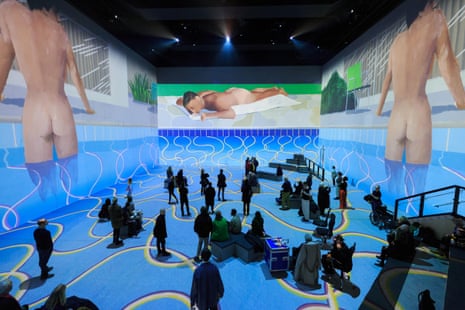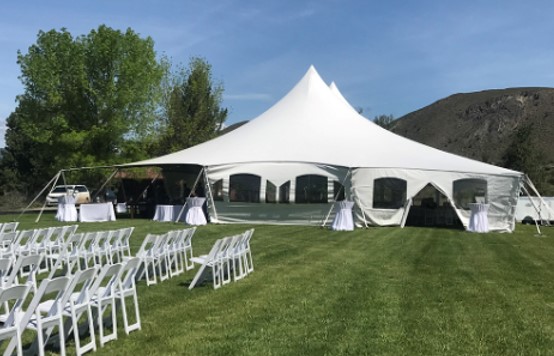- Musicians, like workers across the world, were dealing with worsening conditions pre-pandemic.
- COVID exacerbated this: smaller venues closed, incomes fell into peril, and pent-up demand grew.
- With Taylor Swift shining a light on Ticketmaster, artists are pushing back against the status quo.
Cadence Weapon lost $2,000 going on tour in the US last year.
That’s one reason the critically acclaimed Canadian rapper, writer, and activist — whose given name is Rollie Pemberton — is sounding the alarm on how industry practices are leaving artists in the lurch with stagnant pay, cuts out of ticket-and-merchandise sales, and limited venue options.
“The weird thing about music is the artist is always the person who takes the brunt of things and they’re always the person who the labor is extracted from,” Pemberton said. Tour costs like gas money, plane tickets, and lighting designers are “increasing exponentially” with inflation, he said. A tour like last year’s wouldn’t even be financially feasible for him this year, he said.
He’s not alone. A slew of musicians have canceled shows due to what the indie band Animal Collective described as “an economic reality that simply does not work and is not sustainable” when they called off their European tour.
The indie-pop singer Lorde said that while she’s one of the lucky ones, “for pretty much every artist selling less tickets than I am, touring has become a demented struggle to break even or face debt.”
And the indie singer Santigold said in her cancellation announcement: “As a touring musician, I don’t think anyone anticipated the new reality that awaited us.”
That new reality has musicians determined to clarify that while they are artists, they are also laborers. They are, quite literally, gig workers, and have said that the economic deck is stacked against them. The prominent Live Nation Entertainment kerfuffle at the center of the controversy around Taylor Swift’s ticket sales drew fan ire and led to renewed conversations about how fans and artists alike are at the mercy of the industry. On top of that, the Justice Department is reportedly investigating the 2010 merger of industry leaders Ticketmaster and Live Nation.
“Imagine how many shows you could go to and how many scenes you could support, how many local bands you could go watch, how many out-of-town small bands at your local 250-cap venue you could go see if your Taylor Swift ticket was a reasonable price,” Spencer Peppet, a musician, writer, and odd-job worker who plays guitar and sings in the indie-rock band The Ophelias, said. “It just frees up everything.”
Swift’s controversy is just the tip of the touring iceberg
Even Swift, one of the most dominant pop stars in the industry, found herself at the mercy of Ticketmaster. Her stature limits her mostly to large venues for which this dominant market player handles ticketing.
“When you’re an artist the size of Taylor Swift, you can’t just rent some VFW Hall or something,” George Howard, a professor of music-business management at Berklee College of Music and longtime music-industry executive and entrepreneur, told Insider. “You’re pretty much locked in to touring with these well-established big arenas, and it’s hard to find substitutes for them.”
Ticketmaster ticketed for all but two of the venues Swift is performing in, according to an analysis by Insider. That means that 47 out of her 52 tour dates will take place in venues ticketing through Ticketmaster. She’s playing two dates at State Farm Stadium in Glendale, Arizona, and three at AT&T Stadium in Arlington, Texas, which both sold tickets for the tour through SeatGeek. One data analysis found that fans were more likely to snag tickets at the SeatGeek-ticketed venue than at any of the Ticketmaster-ticketed venues.
“She could choose a different venue if she isn’t happy with a particular partner that they’re dealing with. But then she would have to skip the market in a lot of these cases, because there’s only one stadium in that city,” Kevin Erickson, the director of the Future of Music Coalition, told Insider.
Live Nation Entertainment said in a statement that it owns and operates just over 100 of the nearly 4,000 total live music venues in the United States. When in comes to major arenas played by the likes of Swift, the New York Times reported Ticketmaster tickets 80 of the top 100.
One call to action from musicians and some members of Congress: unwind the 2010 Ticketmaster/Live Nation merger to increase competition in the market.
“Put simply, artists, venues, and consumers should no longer be at the mercy of a single seller,” Sens. Richard Blumenthal, Amy Klobuchar, and Ed Markey wrote in a letter to the Department of Justice.
The DOJ — which had reportedly launched an antitrust investigation into the company prior to the Eras Tour madness — originally allowed the merger of the two giants on the condition that they couldn’t retaliate against, or threaten, concert venues for opting into a different ticketing service.
But, “Live Nation repeatedly and over the course of several years engaged in conduct that, in the Department’s view, violated the Final Judgment,” according to a 2019 release from the Department of Justice.
“We strongly disagree with the DOJ’s allegations in the filing and the conclusions they seek to draw from six isolated episodes among some 5,000 ticketing deals negotiated during the life of the consent decree,” Live Nation Entertainment said in a statement. “Nevertheless, in keeping with our decision to settle, our focus is now on bringing this matter to its conclusion and continuing to deliver the best live event experiences to fans everywhere.”
Merger opponents argue it’s shrunk the market and sent costs flying for fans — a ripple effect that all artists, not just Swift, are feeling.
“It is terrible because we’re trying as an artist community desperately to emerge from an existential threat to the ongoing ability to have a healthy music ecosystem,” Howard said. “And a big part of that music ecosystem is touring.”
A love for music doesn’t pay the bills when artists are paid peanuts and lose a cut of merch and ticket sales
Live-music fans know there are two big ways to support their favorite acts: Buying tickets, and buying branded merchandise, known in the industry as “merch.”
Both of these avenues are increasingly slipping out of artists’ hands and pockets. It’s a standard that, artists said, has changed as the industry has become more consolidated, with ticket fees rising higher, companies garnishing merch revenue, and musicians having to fend for themselves.
Pemberton has been helping lead a campaign in conjunction with the Union of Musicians and Allied Workers, or UMAW, to ask venues to no longer take a cut of artists’ merch sales, which he said can range from 15{61098da95f7e9566452289a1802d8d1a52c0e4ce3811e4bc55deae57fae5622a} to 35{61098da95f7e9566452289a1802d8d1a52c0e4ce3811e4bc55deae57fae5622a}. Live Nation said its clubs “have moved to giving artist 100{61098da95f7e9566452289a1802d8d1a52c0e4ce3811e4bc55deae57fae5622a} of merch sales.”
—Cadence Weapon (@cadenceweapon) November 21, 2022
“I think a lot of people were shocked to realize that the money that they think they’re giving directly to an artist to support them — and that they’ve been told time and time again, this is the best way to support an artist — is actually being garnished by the venues,” Pemberton said.
In addition to cuts of merch sales, big ticketing companies, of which Ticketmaster is the biggest, charge ticket fees that average out to 27{61098da95f7e9566452289a1802d8d1a52c0e4ce3811e4bc55deae57fae5622a} of the cost of a ticket, according to a report from the Government Accountability Office.
Ticketmaster said that figure is closer to 20{61098da95f7e9566452289a1802d8d1a52c0e4ce3811e4bc55deae57fae5622a} of the base ticket price, “but this is neither uniform nor dictated by Ticketmaster.” Typically, artists and promoters determine a ticket price, and then the venue, who is likely in an exclusive contract with a ticketer, negotiates the service fees.
Using the GAO’s findings, that means purchasing a $100 ticket would only net the artist $73. But Pemberton said an artist would be lucky to get to keep all of that. Instead, it often goes towards paying tour costs or is split with a promoter. An artist might make more like $40 at the higher end, or even lose money, he said.
“Our core mission is to support and empower artists as they connect with their fans at live shows,” Live Nation said in a statement. “We’re proud that on average more than 90{61098da95f7e9566452289a1802d8d1a52c0e4ce3811e4bc55deae57fae5622a} of ticket sales revenue for Live Nation tours go directly to artists.”
For Peppet, it was “very exciting” the first time she realized she made enough on tour to pay her rent. One night, The Ophelias opened for a band with an older following who bought their vinyl records and “cushioned” their finances for later in the tour, including a time Peppet got sick and had to miss a few shows.
As a smaller band, venues usually pay The Ophelias what Peppet said is average for an opener or small headliner — $250 a night.
“A lot of times that comes out to pennies per member per day. And then if you do that for enough days, maybe you make some dollars,” she said.
That’s a pretty standard rate, according to sources and booking offers viewed by Insider, and it hasn’t changed since at least 2014. Part of the problem, artists say, is that openers are presented with essentially non-negotiable offers. Some come from a promotion company or booking agency of the headliner, and might offer up to $500. But as Insider viewed, those offers are often blasted out to several groups, and artists say that attempts to negotiate could cost them the gig.
Peppet compared it to the stagnant $7.25 federal minimum wage. And as Pemberton said, all of the expenses for musicians have gone up with inflation, “but the problem is fees have not gone up to make up for that expense.”
“Artists make more money from touring than any other piece of their business including recorded, streaming and more,” Live Nation said in a statement. “The live industry is centered around paying artists first – promoters pay artists guarantees for their shows, and take the bulk of the risk and financial loss if tickets don’t sell. Over the last 10 years, the amount of money we guarantee to the artist has grown annually.”
According to the Bureau of Labor Statistics, musicians and singers made a median of just over $30 an hour in 2021 — a $3-an-hour bump from 2012 pay when adjusted for inflation.
While that’s just a touch below November 2021’s average hourly earnings of $31, wage tracking for musicians is bound to be imprecise. Music teachers, or in-house musicians, are much more likely to have a regular income. But as the BLS notes, many musicians can find only part-time or intermittent work, and many have stints of unemployment between those paying jobs. It’s also unlikely that this measure captures musicians who primarily work in other professions — like service jobs — to subsidize touring or music.
Additionally, it’s unclear whether those wages reflect the cuts that touring musicians have to pay out to their workers, to their managers, and to pay for other tour costs. Those wages are also unlikely to capture work that musicians do off the clock, such as rehearsals. The bottom 10{61098da95f7e9566452289a1802d8d1a52c0e4ce3811e4bc55deae57fae5622a} of musicians made a little under $12 an hour in 2021, according to the BLS.
“Pre-pandemic to go on tour, you were hoping you would break even,” or just make a little money, Pemberton said.
It comes back to what scholars theorize as the “gift economy” of music, where artists are expected to show that they’re not in the art to make money or change their lot in life; they do it just for the feeling of creative satisfaction. In essence, artists who are seen as creating music solely for the love and pursuit of art, rather than profit, are seen more favorably, as opposed to the much-derided “sellouts.” At the same time, Live Nation Entertainment is seeing a record year due to more shows than ever.
“We always welcome the opportunity to discuss important issues facing the live entertainment industry,” Live Nation said in a statement. “The industry is more competitive than ever, but there are many industry reforms that would make the ticketing experience better for fans and artists.”
But a love of touring and music alone doesn’t pay the rent, especially in the current landscape.
“I wouldn’t be doing it if I didn’t love it,” Peppet said. “It can’t just be like, ‘Oh, I love this. I’m going to do it even if I make no money.’ Because that’s how you end up with only previously wealthy people making music.”




More Stories
Remembering Roots Musician Steve James 1950–2023
Mark Stewart, Pop Group frontman and revered countercultural musician, dies aged 62 | Music
Musician Hunter Hayes on the cost of fame and anxiety: ‘I’m my hardest critic’